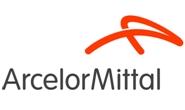Market Segment

April 22, 2014
ArcelorMittal Calls for Enactment of the Water Resources Development Act
Written by John Packard
The enormous undertaking by the US and Canadian Coast Guard to clear the Great Lakes of ice this year underscores the need for passage of the Water Resources Development Act (WRDA). Over 200 million tons of cargo, including iron ore and coal for steel mills, are shipped every year through the Great Lakes, according to the Great Lakes Environmental Research Laboratory. The WRDA provides authorization and funding for the US Army Corps of Engineers to address water infrastructure needs including the building, upgrade or repair inland waterways and ports. The Senate passed the WRDA in May 2013 and the House passed the Water Resources Reform Development Act (WRRDA) in October, but enactment of the bill is held up over a proposed increase in user fees.
It is proposed that the current fee of 20 cents per gallon on diesel fuel paid by 300 barge and towing companies be raised by 26- to 29-cents per gallon. The fee supports the Inland Waterways Trust Fund which provides funding for new construction and major repairs of priority navigation projects on US inland waterways. An increase of 6 cents would add on average $25.2 million annually to the Trust fund. That amount would be matched by the government for a total of $50.4 million annually. A 9-cent increase would add $37.8 million, or $75.6 million total with government matching.
A spokesperson for Waterways Council, Inc. (WCI) told SMU there may be an announcement on the Water Resources Reform Development Act when Congress returns next week from recess. “We do think WRDDA will be passed and signed into law this year ultimately,” said WCI.
An ArcelorMittal spokesperson advised Steel Market Update that the company is closely watching the ice conditions on the Great Lakes which they described as, “…the worst in 30 years, resulting in significant delay in raw material deliveries.”
AM advised SMU that they have been able to maintain production despite the harsh winter weather.
The company also sources a significant amount of their raw materials from Lake Michigan ports, which do not transit the Soo Locks (Soo Locks are located between Lake Superior and the St. Mary’s River pathway to Lake Michigan and Lake Huron as well as the lower Great Lakes).
“ArcelorMittal’s three U.S. integrated facilities on the Great Lakes depend on our waterways for raw material shipments, which include roughly 21 million tons of iron ore per year,” said the AM spokesperson. “This situation underscores the need for Congress to support the valuable work of the US Coast Guard’s heavy icebreaker Mackinaw and pass the Water Resources Development Act, which will provide crucial funding to the Army Corps of Engineers for the maintenance and modernization of our waterways.”
A Severstal spokesperson advised Steel Market Update that they too are closely monitoring the ice situation as, “…transportation conditions are still difficult.”
AK Steel admitted in their earnings conference call earlier today that the company was running their blast furnaces at reduced capacities due to the issues with iron ore shipments on the Great Lakes. CEO James Wainscott said shipping is down high-40 percent to 50 percent from this time a year ago. “We are on it to the extent we can be,” he said. “We can’t control the weather, but we are in daily contact with our iron ore pellet suppliers, the vessel carriers and the Coast Guard regarding changing conditions. The weather is improving a bit and then we hear that they get a foot of snow so there’s give and take there.”
“Our sense is that it is going to last well into probably the third quarter of the year,” said Wainscott. “But it could take most of the year, frankly, for the deliveries to catch up. I mean, there’s only so many vessels and there’s only so much time. And I think about the time that things get caught up, there will be the thought about let’s all avoid this for next year.”







